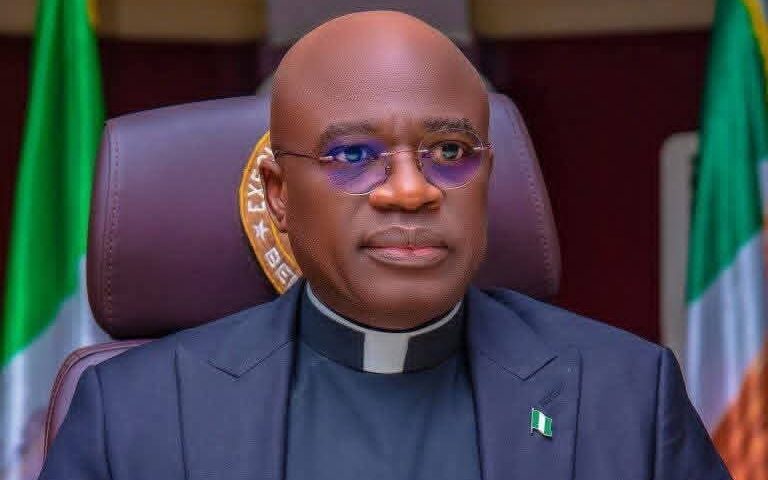674
By Lizzy Chirkpi
A coalition of 2027 governorship aspirants in Benue State has stressed that the full enforcement of the Anti-Open Grazing Law remains the most crucial step toward ending the persistent killings in the state.
They made this position clear while demanding that Governor Hyacinth Alia withdraw and apologise for his recent remarks downplaying the nature of the violence.
The aspirants—ESV. Godwin Ityoachimin (APC), Joseph Waya (APGA), Prof. Terhemba Shija (ADC), Prof. Paul Angya (ADC), Prof. Dennis Ityavyar (PDP), and Hon. Dominic Ucha (PDP)—addressed journalists in Abuja on Friday, insisting that any attempt to resolve the crisis without enforcing the grazing law would be ineffective.
Speaking for the group, Prof. Paul Angya criticised Governor Alia’s statement of 20 November 2025, in which the governor asserted that “there is no religious genocide in Benue State.” Angya said the remark is not only misleading but undermines the core issue behind the violence unchecked open grazing and the activities of armed herders.
The aspirants argued that years of documented attacks have shown a pattern directly linked to the non-enforcement of the 2017 Open Grazing Prohibition and Ranches Establishment Law. They pointed out the “First step towards curtailing the killings in Benue State is for the full enforcement of the anti-grazing law. The systematic targeting of farming communities, predominantly Christian, and mass displacement of populations into protracted Internally Displaced Persons camps, as well as the occupation of ancestral lands after military-style invasions.”
They also referenced “documented statements of intent by leaders of armed groups, including the 2018–2019 declarations by Miyetti Allah justifying attacks as retaliation for the enforcement of the Open Grazing Prohibition and Ranches Establishment Law.”
The coalition emphasised that even the Tor Tiv, His Royal Majesty Prof. James Ayatse, had earlier described the attacks as “a well-planned genocidal and systematic land-grabbing action,” a statement he delivered before President Bola Ahmed Tinubu after the Yelewata massacre.
“When traditional authority, eyewitness accounts, humanitarian records, and security data all align, a denial by the state’s chief executive stands on very weak ground,” the group said.
They demanded an immediate retraction of the governor’s comment and “a public apology to victims, survivors, displaced families, and faith communities whose experiences were dismissed by the statement.”
The aspirants warned that the governor’s stance risks weakening security efforts, stressing that “a government that refuses to acknowledge the nature of the threat cannot design an effective response.”
They further argued that denial may “weaken federal and international support,” which is needed for humanitarian relief, reconstruction, and protection programmes.
Highlighting the current reality, they noted that “tens of thousands remain in IDP camps. Many have lived there for years. Communities are still occupied. Public denial sends a devastating message that their suffering is invisible or politically inconvenient.”
They added that soft-pedalling on the issue only emboldens attackers, saying, “When the government downplays the severity of atrocities, perpetrators interpret such signals as permissive.”
The coalition maintained that for nearly two decades, Benue has faced a coordinated pattern of violence across more than 14 LGAs. They cited the 2025 Yelewata massacre where more than 200 civilians were killed, an incident recognised by international bodies, humanitarian agencies, and even referenced by the Holy See describing these as “empirical facts, not political rhetoric.”
Reaffirming their position, the aspirants concluded that the first and most decisive step toward ending the bloodshed is uncompromising enforcement of the anti-grazing law, which they believe will address the root cause of the crisis and restore security to Benue communities.



